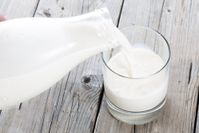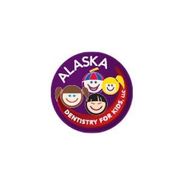How Does Fruit Juice Affect Children’s Oral Health?

Parents know their children’s dental care encompasses regular flossing, brushing, and oral exams. Yet, what your children eat and drink can have a significant impact on their oral health, too. In particular, parents should be cautious about the beverage choices they make for their little ones, especially when it comes to fruit juice. Discover the potential impact juice can have on children’s dental wellness below.
Does the Type of Juice Matter?
Some types of juice are healthier than others. Drinks containing 100% juice made from real fruit will provide servings of healthy micronutrients and have little to no added sugar. On the other hand, mixed juice blends and cocktails typically contain little real fruit juice and may consist mostly of water and added sugars. Not only do these products have minimal nutritional value, but their added sugars can lead to dental issues, such as decay.
How Does Juice Damage Teeth?
Unfortunately, even 100% fruit juices may contribute to cavities and other dental problems. Apple, cranberry, and grape juice is high in sugar, and while natural, these sugars can create plaque buildup. Over time, excess plaque can cause cavities and irritate the gums, potentially leading to gum disease if left unaddressed. Many juice varieties are also acidic, which causes the enamel to erode over time. This leaves teeth more vulnerable to sensitivity and cavities.
How Can You Minimize the Impact of Juice?
While you don’t have to eliminate fruit juice from your child’s diet altogether, there are some tips dental care professionals advise to help reduce the risk of it causing issues:
 Serve water or milk: When your child is thirsty, offer them water or milk to stay hydrated. Milk is particularly beneficial for promoting dental wellness, as it’s rich in calcium, which helps build up strong teeth and bones.
Serve water or milk: When your child is thirsty, offer them water or milk to stay hydrated. Milk is particularly beneficial for promoting dental wellness, as it’s rich in calcium, which helps build up strong teeth and bones.- Limit to 4 to 6 ounces: While juice can be a convenient way to get a fruit serving into your child’s daily diet, limit their consumption. This serving suggestion is the size of most children’s juice boxes.
- Maintain dental care: Although no amount of dental care won’t offset a diet high in added sugar, having your child see their dentist regularly can help keep cavities at bay. Thorough cleanings and fluoride treatments are especially important for keeping teeth and gums healthy.
If you’re a parent in the Anchorage area seeking a dental care professional to help your little one maintain a healthy smile, turn to Alaska Dentistry for Kids. This practice is committed to providing high-quality care in a comfortable environment for children. Browse through their comprehensive services online, or call (907) 274-2525 to schedule an appointment.
About the Business
Have a question? Ask the experts!
Send your question

